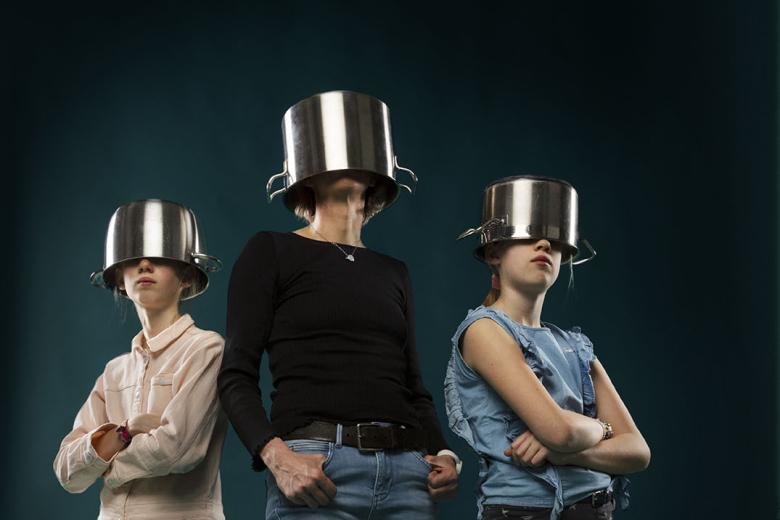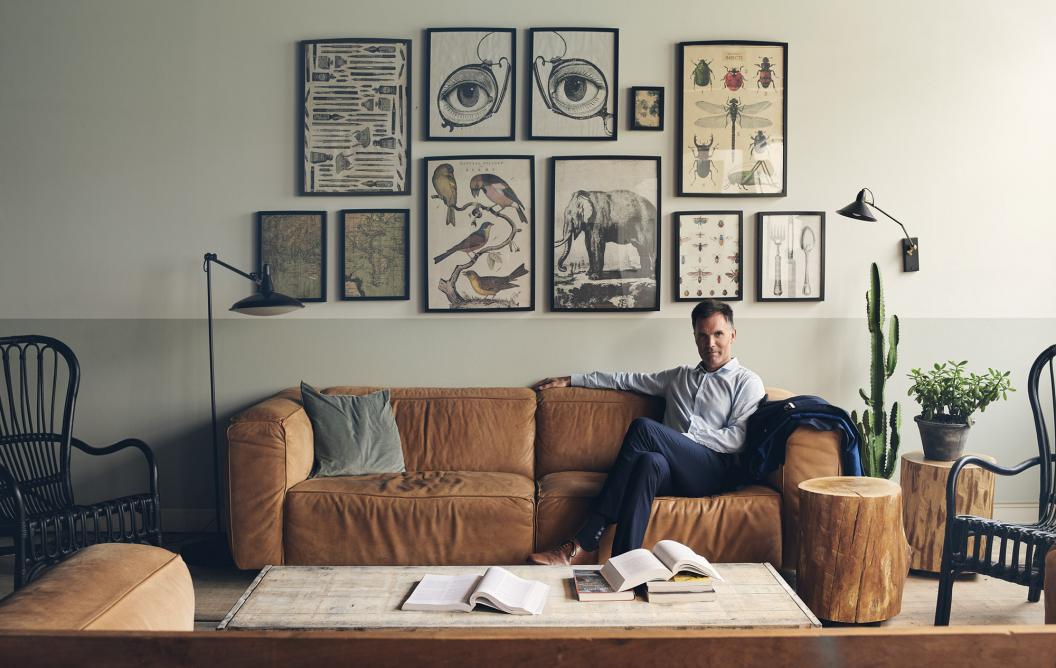From Viking to dean
He calls it the most formative experience of his life: becoming a member of scouting club The Vikings at the age of 13. “Pretty soon I led a group of seven scouts. That came about very organically – I was the largest and the oldest.” With his scouting experience and his strong sense of social engagement, he seems a born leader. “I have no trouble making decisions.” A conversation with the Dane Peter Møllgaard, dean of the Maastricht School of Business and Economics (SBE), on role models, family, sustainable energy and the best risotto.
Scouting was in the family: his maternal grandfather and both his parents were all involved with the scouts. “I joined a club that had just split off on its own. That had the advantage of allowing us to create our own traditions. I learned so much there; about life in the wild but also about taking responsibility. My first leadership position was patrol leader. A group of us found ourselves in the middle of nowhere. Two boys wanted to keep going, three wanted to stop and the others wanted to go back. That was a challenge – I was just a teenager – but I was able to get everyone heading in the same direction again.”
Role models
Møllgaard was born and raised in Copenhagen, his father a naval officer and his mother a teacher. “It was a fairly intellectual family. There was a lot of reading, and during dinner my parents and my sister and I debated anything and everything. My father played the piano and my mother sang and played the guitar; she was enthusiastic but no Joan Baez”, he adds with a laugh. “My father was my greatest hero. I wanted to become a captain out at sea just like he was. I recall my parents going to parties together, he in uniform, she in a ball gown. They were so beautiful, such a glamorous couple, like they’d walked straight off a film set. In those days they were very happy together.”
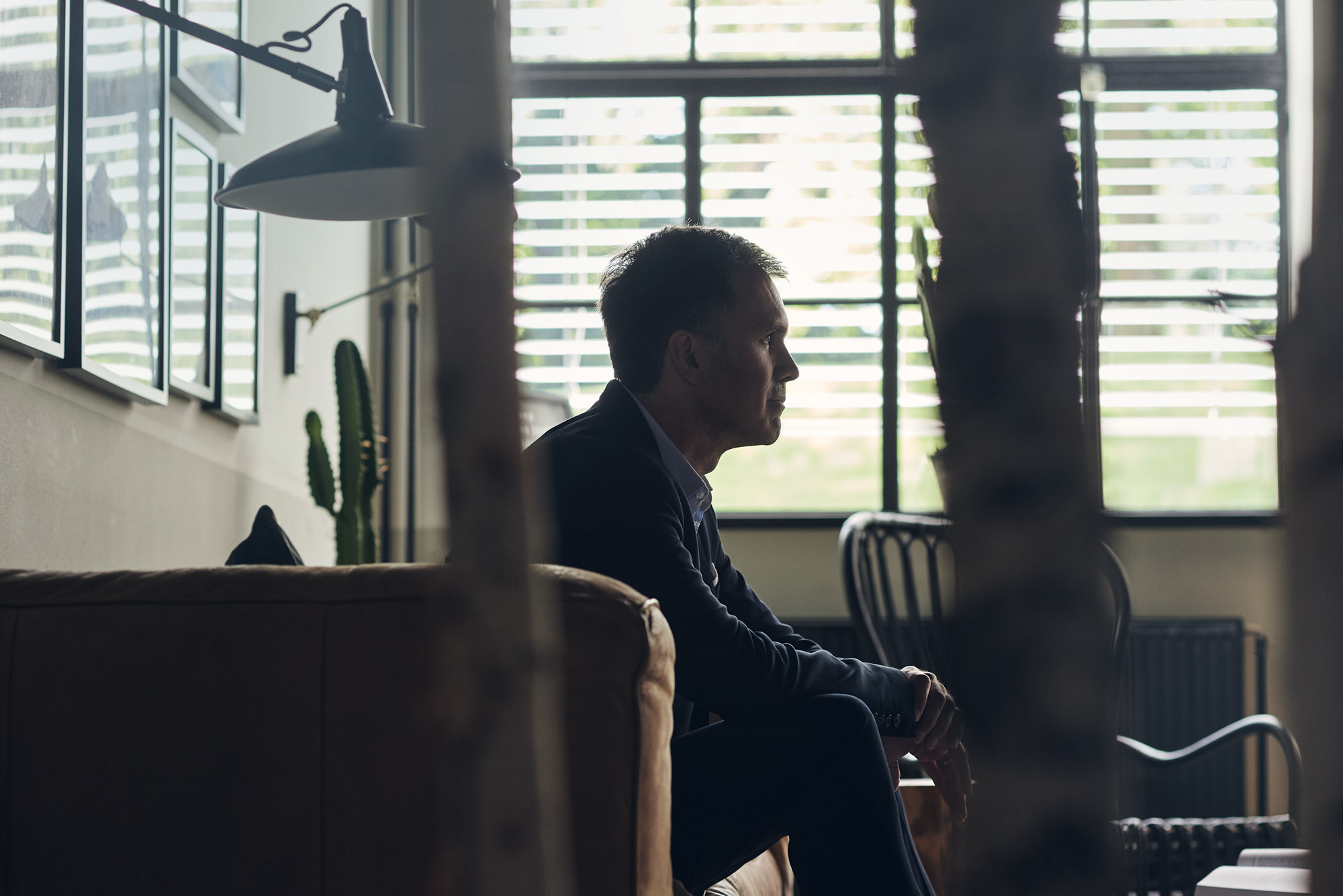
Only later did he realise it was his mother who was his most important role model. “Last year she turned 80 and I thought about it a lot. She was the glue that held our family together, including in difficult times. After my father retired, when I was around 16, he started drinking and things went downhill. He became a very different person. It was hard to watch someone you love fall apart like that. He became a negative example for me; it was a kind of wake-up call that I had to rely on myself, make my own decisions and form my own judgements, because I couldn’t trust this man anymore. My mother turned out to be the stable factor. She took care of him and us, but not at the expense of herself. When I started my studies, so did she; she enrolled in a psychology programme. I found that very admirable.”
Malleable society
Growing up in the 1970s was, for Møllgaard, mainly about freedom. He played classical guitar and read whatever was at hand, including the feminist literature his mother left lying around, from Germaine Greer to Danish greats. “In those years there was a strong belief in a malleable society, not only among feminists but also in my economics studies. People assumed that you could engineer society.” This was one reason he chose to study economics rather than classical guitar at the music academy. “As a musician I didn’t think I’d be able to have the impact on society that I wanted.” After his studies, he was offered a PhD position at the European University Institute in Florence. When his proposal in econometrics fell through because there was no suitable supervisor, he had to come up with a new topic. “I was given the choice between the lavender market in France or the oil market in Europe. The latter struck me as somewhat more relevant”, he adds drily.
Windmills
On his return to Denmark, his knowledge of the oil market piqued his interest in renewable energy and climate change. He worked for a year at the newly established Ministry of Industry and Coordination, where he met his wife, and in 1994 became an assistant professor in Aarhus focused on the Danish energy market. “I was commissioned by one of the regulators to find out how the energy market worked. Engineers thought at the time that only 4% of energy could be generated by wind turbines; now it’s more than 50%.” One thing led to another, and Møllgaard became a member of the Supervisory Board of Energinet, the owner of Denmark’s gas and electricity infrastructure. “There I was able to make a practical contribution to the development of more sustainable wind and solar energy.” Next he joined a government energy committee, and, in 2018, he became chair of the Danish Council on Climate Change, an independent body that advises the Danish government. “Climate is the most important issue of our time. Having the opportunity to make a contribution is very important to me, and is in line with my earliest ambition: to make a difference in society.” A recognised authority in the field, he is regularly interviewed on the topic in the Danish media.
Far yet near
The vacancy for the dean of SBE came at the right time for him. “My contract as Dean of Research at Copenhagen Business School was coming to an end, and my children don’t need me as much as they used to.” Only his youngest child – his 15-year-old-daughter – still lives at home, with her mother in Copenhagen. The plan is for her to finish the first phase of high school there, and for them to join him as of next summer in Maastricht, where she will do her International Baccalaureate. “The rule is that we see each other every week, alternately in Copenhagen and Maastricht. That works very well. And we Skype and Facetime. That way I can help my daughter with her homework, and when she’s had enough of me she can just click me away”, he laughs.
His sons, aged 20 and 24, live in Copenhagen. The eldest is doing his master’s in Commercial Law and Business Administration at Copenhagen Business School (CBS). “The course I taught, so he’s glad I’m gone.” The younger son is studying to be a chef. “That was his childhood dream. My wife’s father was a very good chef, first in a restaurant and then as a private chef for a well-known Dane who became very wealthy in the travel industry. The food was brought in from all over the world. My son often cooked with him, learned a lot from him. Now we compete to see who can make the best risotto, and I have to admit he’s now better than me, despite my 30 years of experience.”
Relationship therapy
Møllgaard enjoys a bit of competition. Every year, he and his wife choose an exercise-related challenge. “It started with running together. She’d never been a runner, and now she’s running the half marathon. Then I traded running for cycling and we spent a week cycling from Copenhagen to Oslo, 1100 kilometres in six days. That was a lot of fun. She’d never been on a racing bike, so she really had to train. And in January 2018, shortly before I started here, we climbed Kilimanjaro. To prepare for that we did a lot of hiking together, which was wonderful. There’s no better relationship therapy than spending eight hours walking together. This year we had to give it up, unfortunately; all our time has gone into reorganising family life across two cities.”
Tough times
His first year in Maastricht was also tough in terms of work: finding one’s feet in a new place is demanding. But he is happy here. “I immediately clicked with this university. I wasn’t familiar with Problem-Based Learning, but I think it’s great. CBS is one of the largest business schools in the world; it has over 21,000 students, so I regularly taught groups of 700 students. But we do have to update PBL, that’s something we’re working on. Another important aspect is the International Classroom, it’s even more international here than at CBS. As a leader, I think I’ve developed skills I can use to improve a number of things. More transparency, for example, so that people aren’t just assigned a position but apply for it internally. That helps to break down the old boys’ network. The number of female professors at SBE is around 14%; that needs to increase. And we have to go back to the university’s core business: disseminating research, education and knowledge, in such a way that everyone’s talent can grow.”
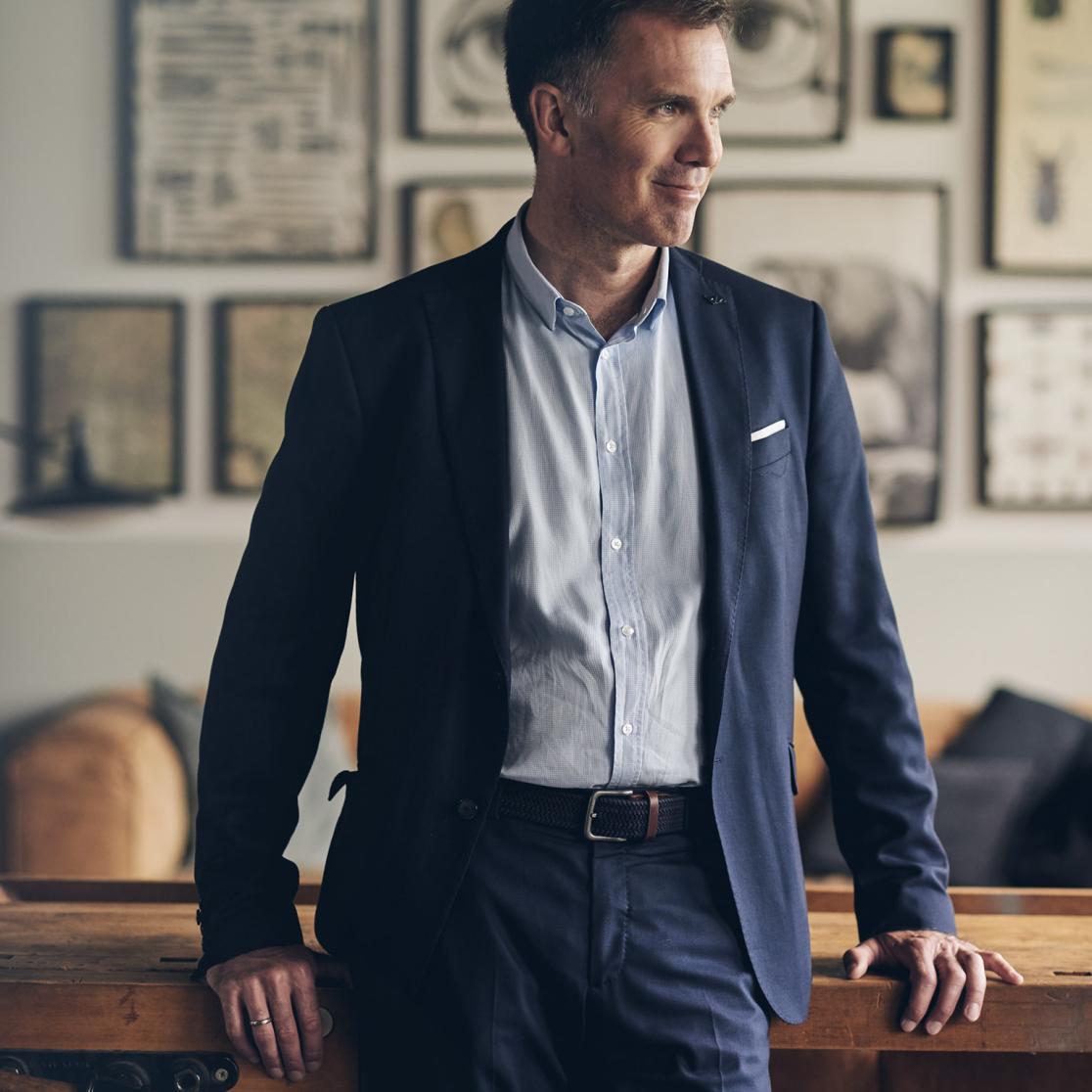
Also read
-
Empowering Smallholder Farmers in the Data Economy: Unlocking Opportunities and Overcoming Obstacles
Frederik Claasen, the head of policy at our partner organisation Solidaridad Network on the opportunities and obstacles facing smallholder farmers in their data ecosystems.
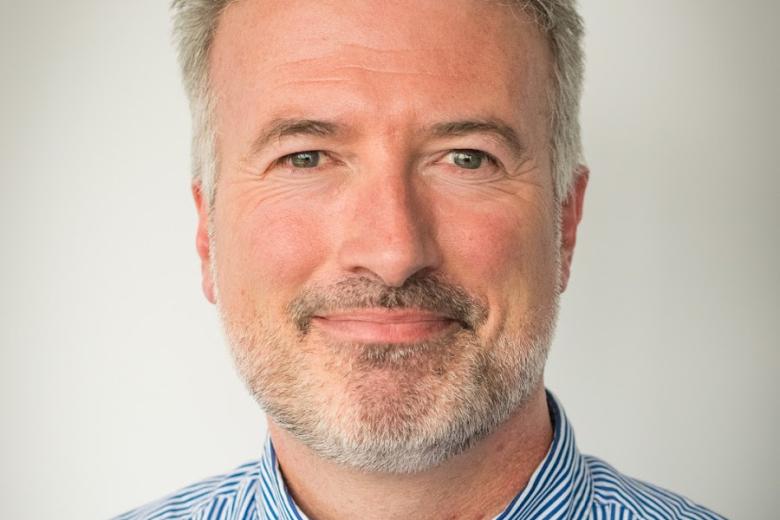
-
The last 'nerve doctor' in the Netherlands
Frans Verhey, professor of Geriatric Psychiatry and Neuropsychiatry is proud of what the Limburg Alzheimer’s Centre has achieved and of its team, which works tirelessly to improve the quality of life of people with Alzheimer’s. “Alzheimer’s tends to be seen as a horrible, deadly brain disease that...
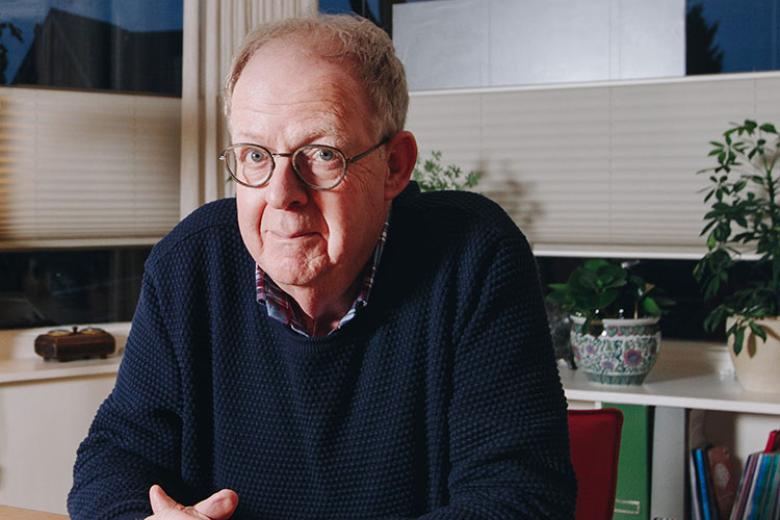
-
The scientist, the chef and her passions
Anne Roefs was awarded a Vici grant of €1.5 million. The professor of Psychology and Neuroscience of Abnormal Eating, was tossing up between a career as a scientist or a top chef.
